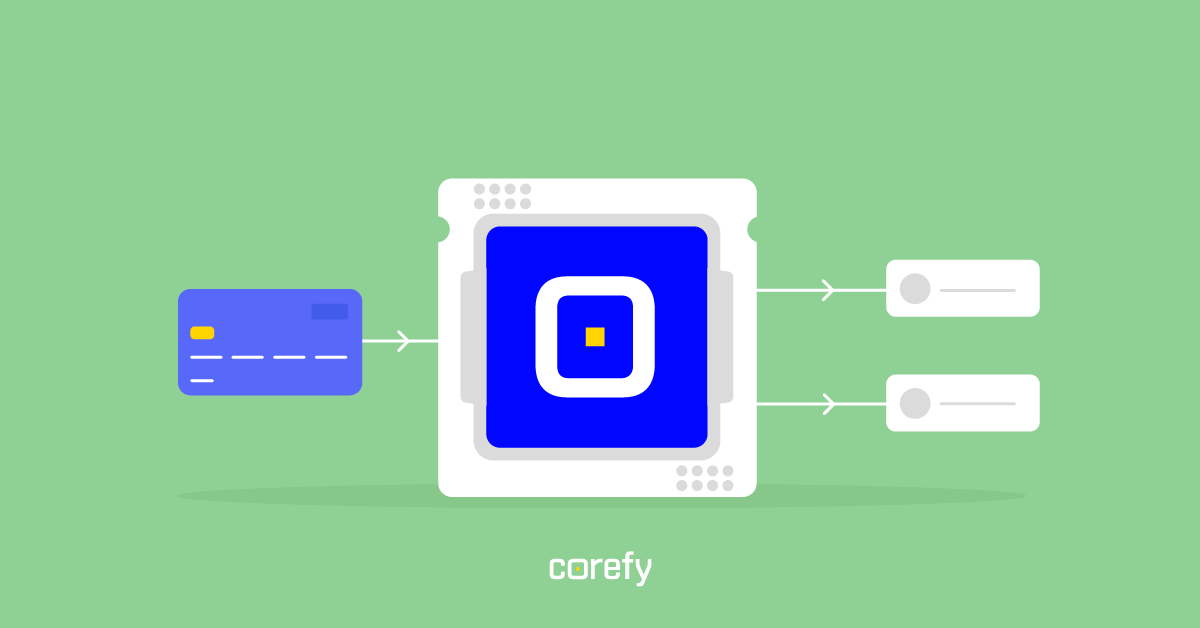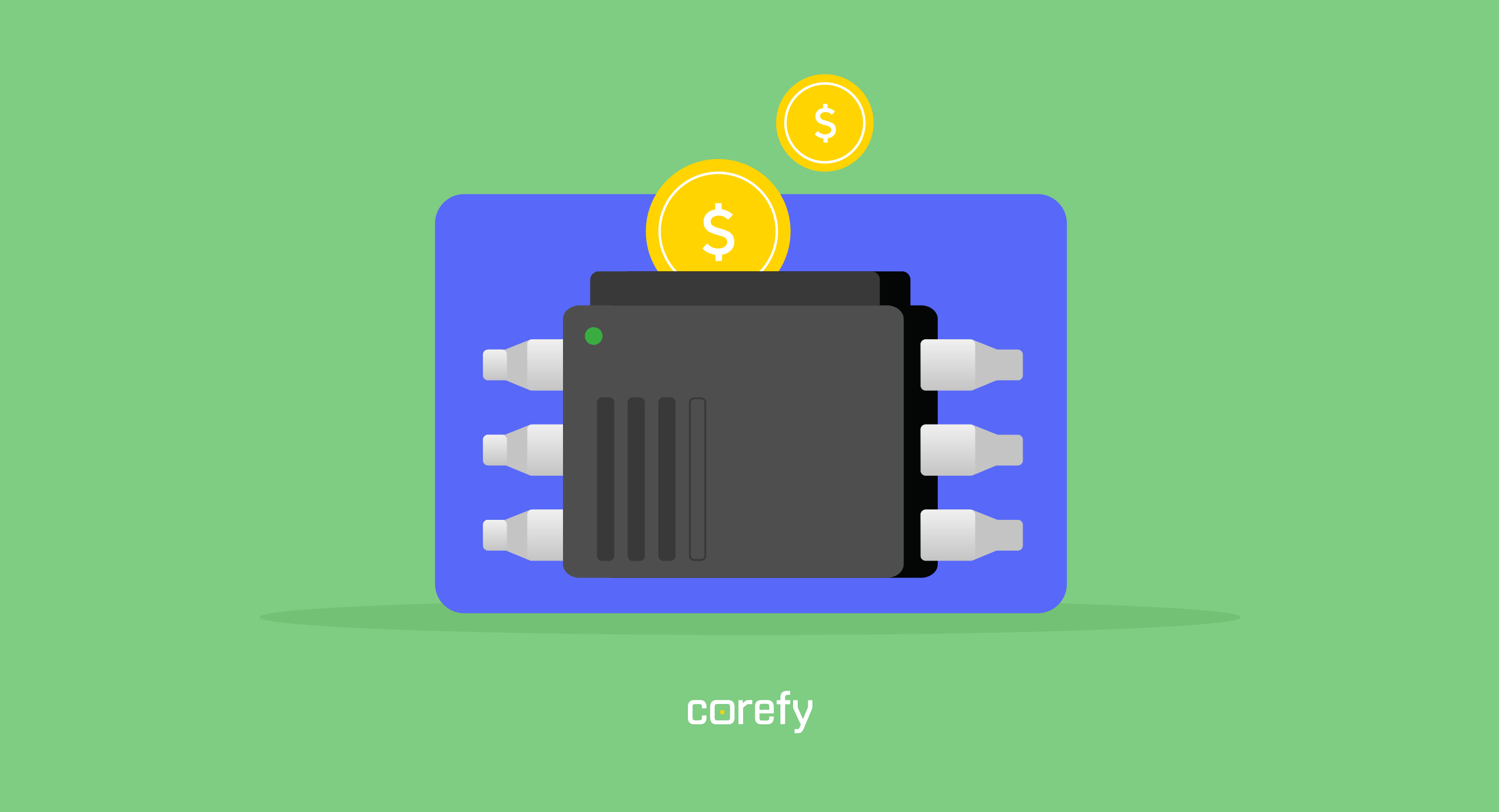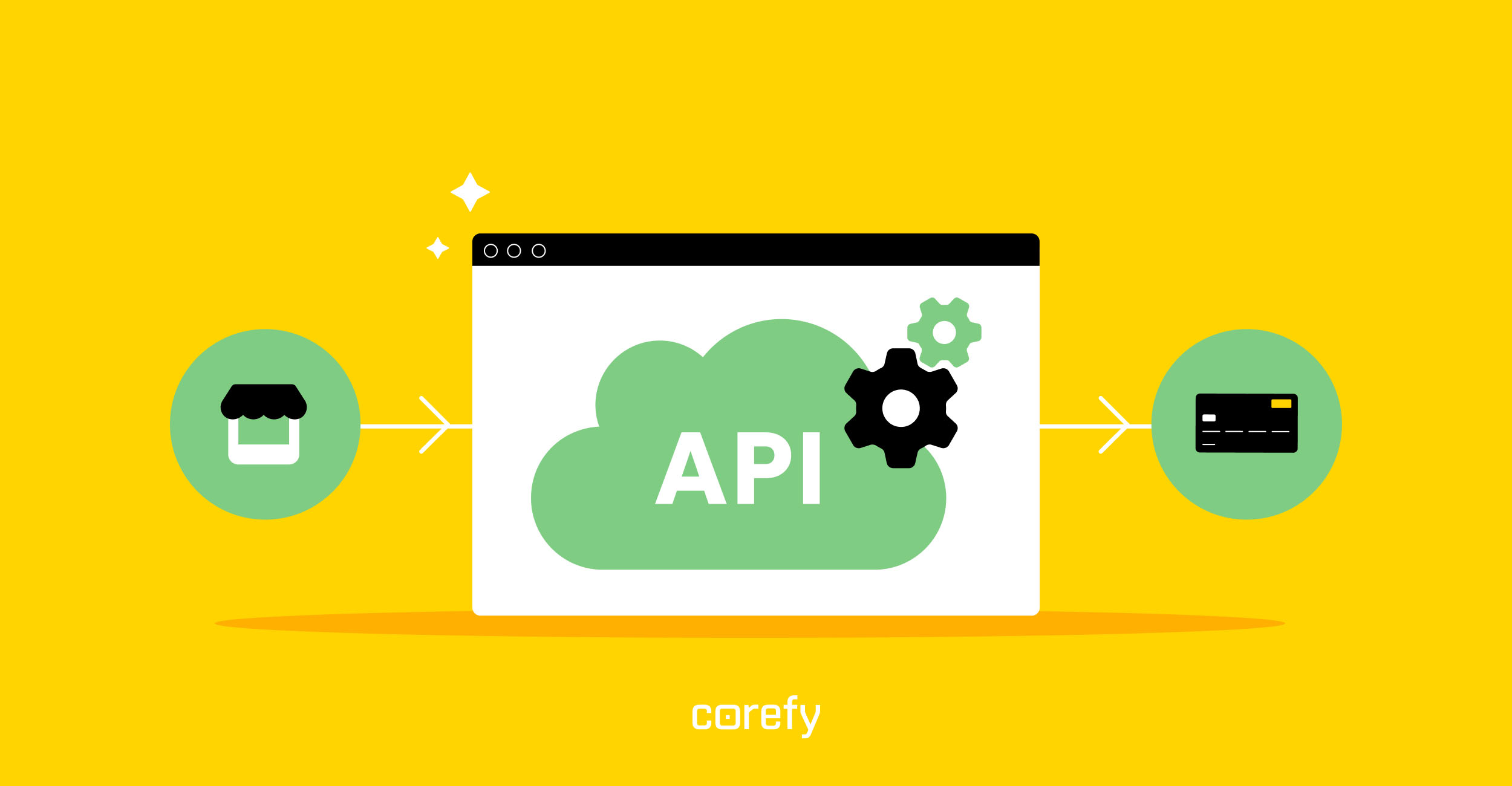Are you planning to expand your online business to the African market? Spoiler: You might be surprised by the popularity of alternative payment methods.
The African payments landscape has several traits that make it stand out — it can even be called unique. This specificity affects the cost of acquiring, billing, and processing. This article is your handbook of the essentials you should know before getting down to business in this region.
African market outlook
Internet technologies are spreading rapidly across the African continent. According to Statista, by January 2024, Southern Africa led African regions with the highest internet penetration at 73%, while Northern Africa followed closely at 67.8%. Both surpassed the global average of 66.2%. Conversely, Middle and Eastern Africa reported the lowest rates at 32.1% and 26.7%, respectively.
E-commerce is becoming more dynamic, with mobile e-commerce dominating the scene. The region’s market has many opportunities for merchants seeking to expand their business in this direction. However, due to the lack of operating systems capable of supporting digital payments, the online commerce sector often faces obstacles to its growth. On the other hand, the region’s population strives to go beyond national boundaries and expand their companies' capabilities to the international level.
Payment landscape in African countries
There is a global trend toward online shopping and non-cash payments. This is not surprising given how quickly and in what volume and range Internet services are flourishing.
In addition to strict state control, a weak, underdeveloped banking system also affects the African market. There are a few banks and huge queues at the branches. To perform any banking operation (e.g., transferring money from one account to another), users must complete multiple forms and spend significant time.
The African region's specificity stems from low Internet penetration and consumers' low computer literacy in certain countries. The area uses multiple currencies, including the Libyan dinar, Zambian kwacha, Tunisian dinar, Moroccan dirham, and Egyptian pound. While some payment services work only with local currencies, others also use the dollar. That's why merchants often prioritise localisation and white-label checkout options to ensure a consistent payment flow while adapting to each country's language and currency. Still, most transactions in Africa are cash-based.
Key regional aspects
- Nigeria is the leader in e-commerce. Almost 90% of internet users are potential buyers, and one-third shop within the African continent. Several payment systems operate in the region. The most used are PayPal due to its high-level security, Interswitch, and InternetPay. It is worth noting that many systems perform only with the appropriate e-mail and a particular bank account. Basically, customers value transaction reliability the most, for they fear becoming a victim of different types of fraud. Despite the widespread adoption of electronic payment methods, cash remains the dominant form of payment in Nigeria.
- Kenya is the undisputed leader in terms of money transfer system development. Today, almost all adults in Kenya use M-Pesa by Safaricom to transfer money, pay for utilities, and pay in shops, cafes, restaurants, gas stations, etc. This payment method is convenient because the transfer is carried out instantly, is relatively inexpensive, and is available to everyone with a mobile phone. It has also become an excellent solution for small businesses — any company can open a business account and accept payments from its customers and counterparties. Withdrawing cash from the system is also easy — one can receive the money within a few minutes from any of the 150,000 agents throughout the country.
- Tanzania and Uganda followed Kenya’s path. Almost all adult populations there use mobile wallets. But in contrast to Kenya, where Safaricom controls about 70% of the market, the mobile money market here has been divided approximately equally among several companies. Four major services — Vodacom, Tigo, Airtel, and Halotel — compete with each other in Tanzania.
- Zambia‘s telecommunications companies were late for the start of the mobile revolution due to their inertia or some other reason. They were replaced by Zoona company, which copied the Western Union business model. Every village in Zambia has a company agent who will help accept or issue a money order within minutes.
- Ethiopia is a large country with over 100 million inhabitants. Over the past 15 years, it has been the leader in terms of economic growth. Despite this, Ethiopia still lacks a modern financial infrastructure: ATMs appeared only a few years ago and mobile money in 2018. The largest market in Africa, Mercato, is situated in Ethiopia; its turnover is tens of millions of dollars per day, and it still operates primarily in cash.
Popular payment methods in African countries
As of January 2024, 43% of e-commerce transactions in South Africa were made via credit card, with bank transfers comprising 22% of purchases, ranking second. Due to the lack of banks and bank departments in African countries, e-wallets share the leading positions in the local payment culture, ranking third with a 20% share. This is mainly triggered by the fact that a significant part of the population has internet access only via a mobile phone. Moreover, in several countries, mobile operators offer free traffic on Facebook. That means the chances are high that this mobile network might soon become the region’s leading online store.
Kenya is the leading country in mobile payments — two-thirds of purchases are paid for with mobile wallets. Mobile wallets are also popular in Nigeria. For security reasons, M-Pesa from Vodafone and MFS Africa lead the pack in Somalia. The main reasons for using alternative payment methods in some African countries are protection from robbers and distrust in the banking system.
Here’s the list of the most popular payment methods in the African region:
- Visa
- Mastercard
- Bank transfers
- PayPal
- Skrill
- Neteller
- ApplePay
- M-Pesa
Cash-on-delivery is also quite popular in Africa. Over half of buyers in Egypt, Nigeria, UAE, and Saudi Arabia choose this method. The exception is South Africa, where bank cards are more popular and Morocco, where their share is snowballing. South Africa mainly uses PayPal, Ukash (a voucher system for online payments without a bank account), M-Pesa and Zapper mobile wallets, FlickPay mobile solution, and the Cell Pay Point payment service. Several North African countries (Tunisia, Egypt, and Morocco) use the following payment systems: SagePay, MyGate, Ingenico, Skrill, and Wafacash.
How to choose a payment service provider in Africa
The first step before entering any market is to choose a reliable payment service provider suitable for your business and the geography of its audience. And it’s important to understand that PSP fees are far from the first criterion for choosing.
To begin with, try the following steps:
- Analyse your company's key indicators and plans. Define which geographies you are about to expand into or enter.
- Decide about the legal structure — where it will be established. If you’re a startup, you most likely won’t be able to independently decide due to the lack of knowledge on the specifics of all countries' tax systems. Therefore, the chosen provider should offer the best options for your business.
This will significantly narrow down the list of payment services suitable for your company.
Despite its explosive growth, the African digital payments market is still far from saturation. The need for a reliable and efficient money-transferring system is much higher than the supply. Telecom companies currently compete successfully with traditional banks in this market. Mobile payments are an essential economic factor. They engage even low-income Africans in commercial activities. The service, which was initially considered additional, has now become the main advantage of the mobile phone.
How Corefy helps enter the African market
At Corefy, we offer expanding businesses a unified payment infrastructure, streamlining the integration of diverse payment methods and acquirers. With over 400 ready-made integrations and the flexibility to connect more upon request, our clients can reach customers in new regions. Moreover, our comprehensive analytics tools, dedicated technical support, and strong fraud prevention measures enable businesses to make informed decisions and navigate expansion challenges effectively. Schedule a brief call with our specialists to discover the advantages your business can gain from integrating with our platform!



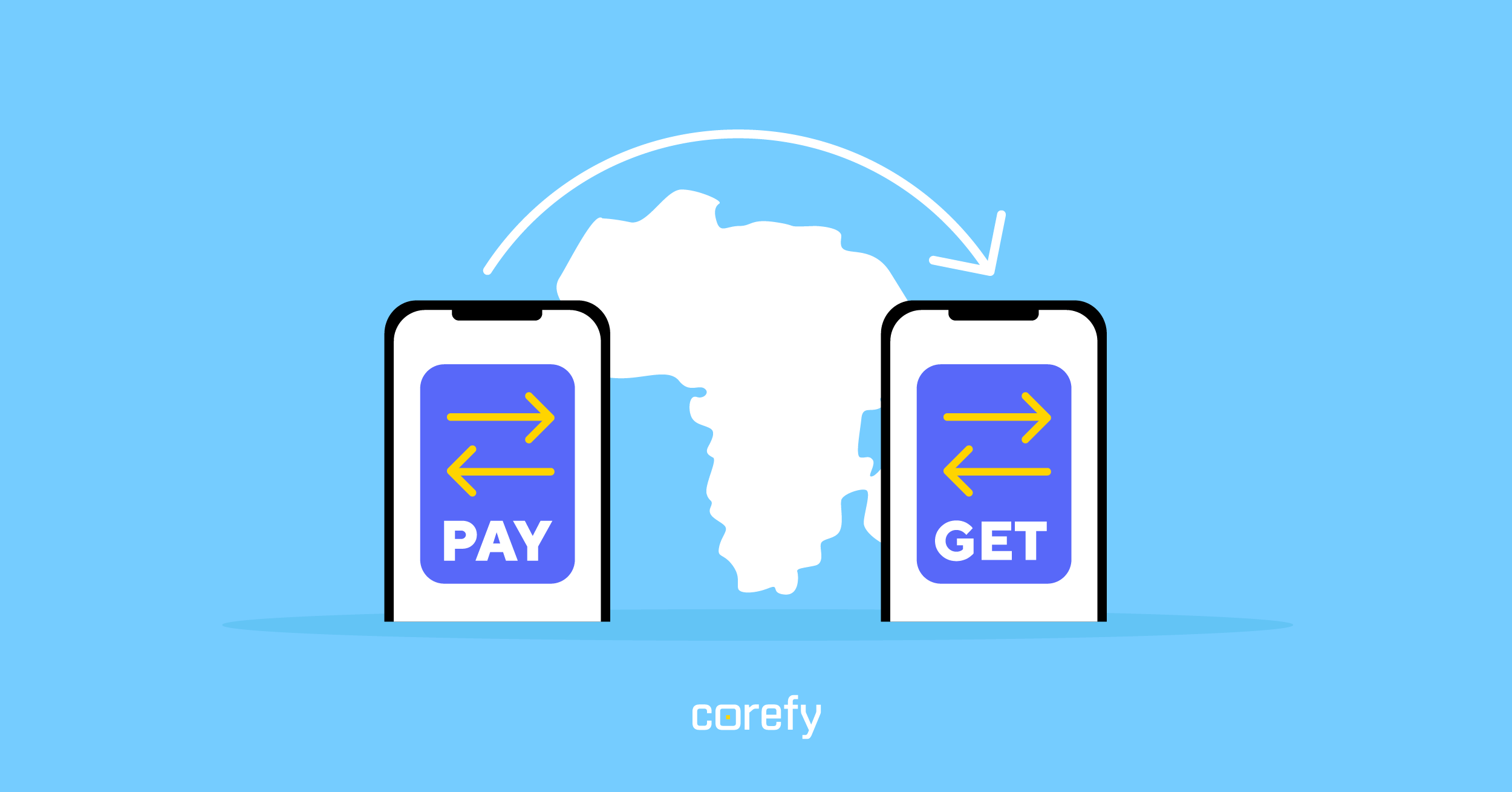
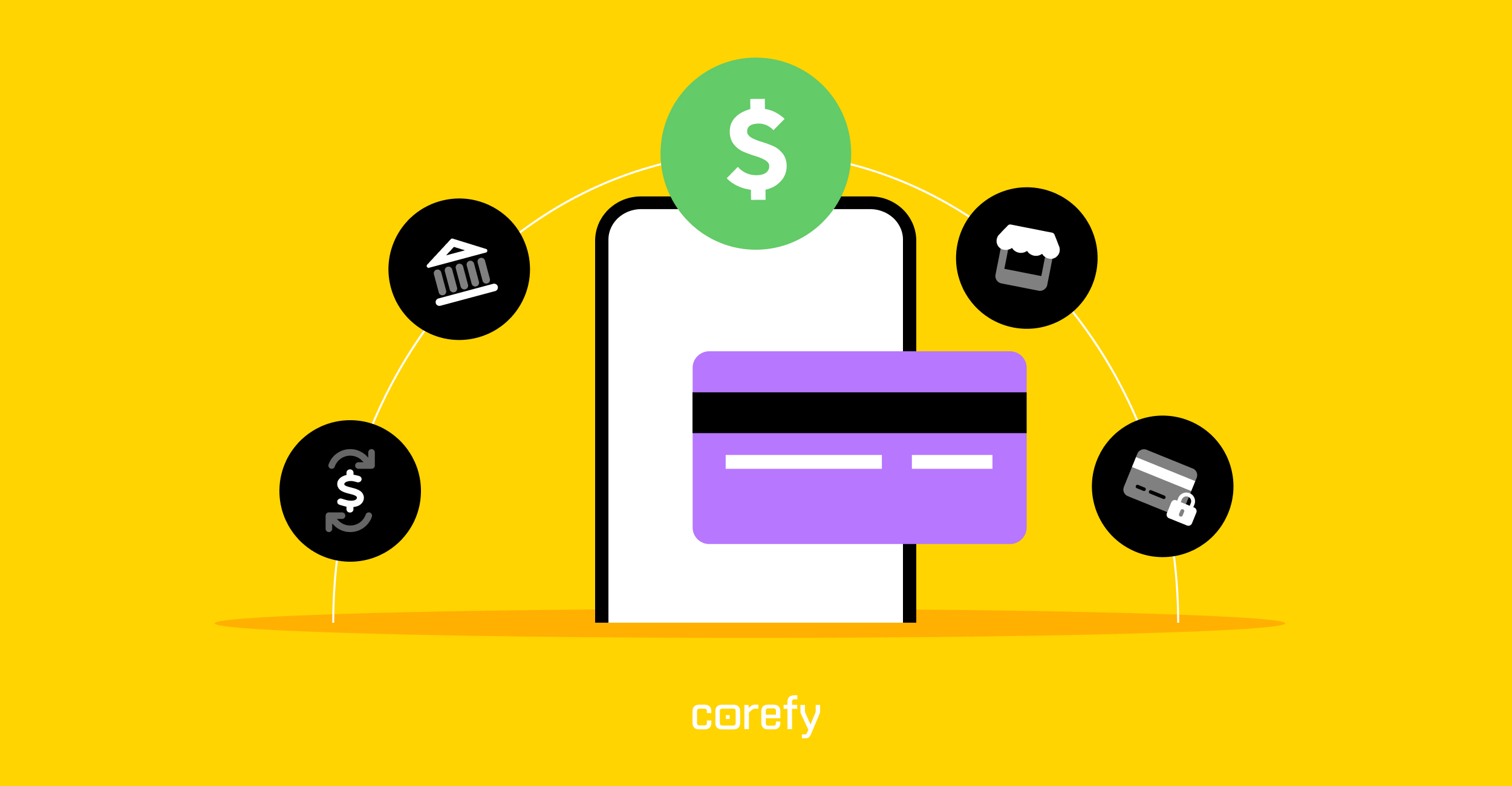
.png)




